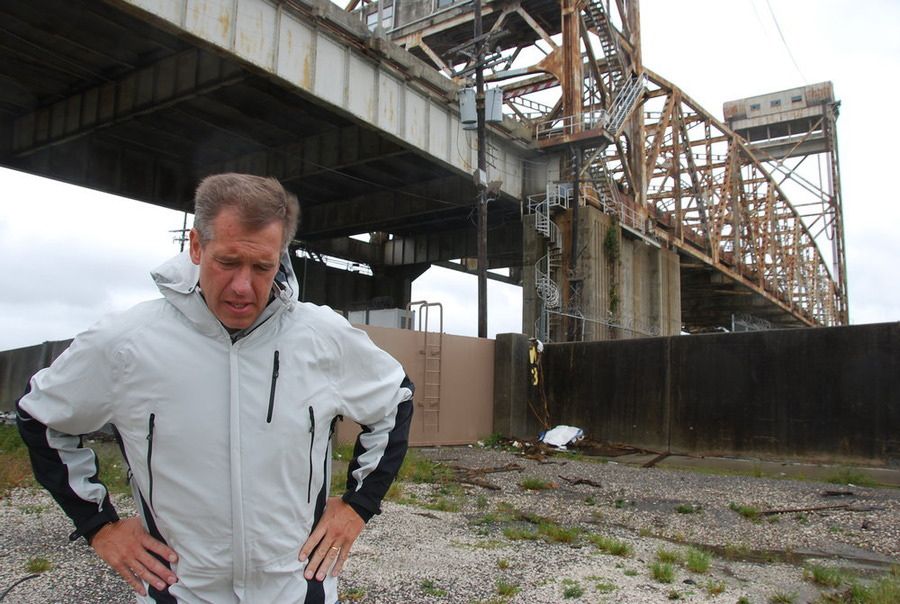Brian Williams, and the hero problem that's plaguing network news
Why do we expect our news anchors to be modern day Indiana Joneses?


Brian Williams has a pretty exciting life.
As the highest-rated network news anchor on television, he gets to travel all over the world to places where important things are happening, and he gets to talk to interesting people. He also makes a reported $10 million a year, which doesn't hurt either. However we judge the tales he has told — whether we think they're the unintentional failures of memory to which we're all prone or something more troubling — they suggest a man with an investment in creating a certain image: the news anchor as swashbuckling hero, jetting off from one danger zone to another to bring his viewers the real scoop on the ground. Now that NBC has suspended Williams for six months without pay while the network continues its investigation, it might be time we put away that particular persona.
It should be noted that Williams' inaccurate stories weren't failures of his journalism, but failures in how he talked about his journalism off-camera. In both the story that started this controversy, about a helicopter trip in Iraq in which Williams' copter did not actually get hit by a rocket-propelled grenade, and the other stories that are now receiving scrutiny — about what Williams saw in New Orleans after Katrina, and another dangerous helicopter trip over northern Israel — he doesn't appear to have said anything inaccurate during his on-air reports. It's only afterward, when he was recounting the experiences, that Williams either dissembled or misremembered.
Subscribe to The Week
Escape your echo chamber. Get the facts behind the news, plus analysis from multiple perspectives.

Sign up for The Week's Free Newsletters
From our morning news briefing to a weekly Good News Newsletter, get the best of The Week delivered directly to your inbox.
From our morning news briefing to a weekly Good News Newsletter, get the best of The Week delivered directly to your inbox.
That's an important distinction, but it may not be enough to exonerate him. I'm sure there are many people, regular viewers of NBC Nightly News or not, who think that Brian Williams doesn't seem like the kind of person who would intentionally lie to people. And he doesn't. If you've seen him on his appearances with Jon Stewart and Jimmy Fallon or his goofy cameos on 30 Rock, he seems like a personable, smart, funny guy who doesn't take himself too seriously.
But even when he says things like, "I've done some ridiculously stupid things under that banner, like being in a helicopter I had no business being in in Iraq with rounds coming into the airframe," the point of the story he's telling — whether it's being told to David Letterman's audience or at a hockey game — seems to be to portray himself as, if not quite heroic, then certainly one who has been a witness to the most harrowing and consequential events. He always heaps praise on members of the military or first responders, yet his stories are full of military terminology and slang, lending them a particular kind of authenticity, one that says that Brian Williams is no naïf.
With all we know now, even those regular self-effacing asides begin to look calculated. As Jay Rosen pointed out, Williams seems to have looked for opportunities to tell and retell the Iraq story. After a while it begins to feel like the point of the story is always the same: I was there. He isn't just a guy who sits behind a desk reading off a teleprompter. He's been in it, and deep, when the shit went down.
Which may or may not be important for Brian Williams' conception of himself (I can't know anything about what's in his head), but why should it matter to any of us? Why does a network news anchor need to be the one wading through the floodwaters or flying into a combat zone?
There are plenty of journalists, some of whom work under Williams at NBC, who actually do put their lives on the line to report the news. According to the Committee to Protect Journalists, 61 reporters were killed in 2014, either in the act of reporting or because of their reporting. But what, really, is the value of someone like Williams going to the site of a war or natural disaster, when his network already has people there getting the story? An ordinary TV reporter already requires an entire group — producer, camera operator, sound technician, et cetera — that attracts attention wherever they go and can sometimes limit their access. A hugely famous anchor is going to travel with an even bigger entourage.
As much as the anchor might like to get on the ground and remind himself of the days when he occupied a less lofty perch, it doesn't help his viewers understand the event any better. No anchor does real reporting when they leave the studio. Brian Williams' viewers should want him to be trustworthy and thoughtful, but they won't lose anything if he leaves the most dangerous newsgathering to others.
That might make him feel a little less adventurous and a little less heroic. It would probably make him a less entertaining storyteller. But if he manages to keep his job after this suspension, it would also keep him from being tempted to tell more tall tales. That would be good for him, and for his viewers.
Sign up for Today's Best Articles in your inbox
A free daily email with the biggest news stories of the day – and the best features from TheWeek.com
Paul Waldman is a senior writer with The American Prospect magazine and a blogger for The Washington Post. His writing has appeared in dozens of newspapers, magazines, and web sites, and he is the author or co-author of four books on media and politics.
-
 Foreigners in Spain facing a 100% tax on homes as the country battles a housing crisis
Foreigners in Spain facing a 100% tax on homes as the country battles a housing crisisUnder the Radar The goal is to provide 'more housing, better regulation and greater aid,' said Spain's prime minister
By Justin Klawans, The Week US Published
-
 Crossword: January 22, 2025
Crossword: January 22, 2025The Week's daily crossword
By The Week Staff Published
-
 Codeword: January 22, 2025
Codeword: January 22, 2025The Week's daily codeword puzzle
By The Week Staff Published